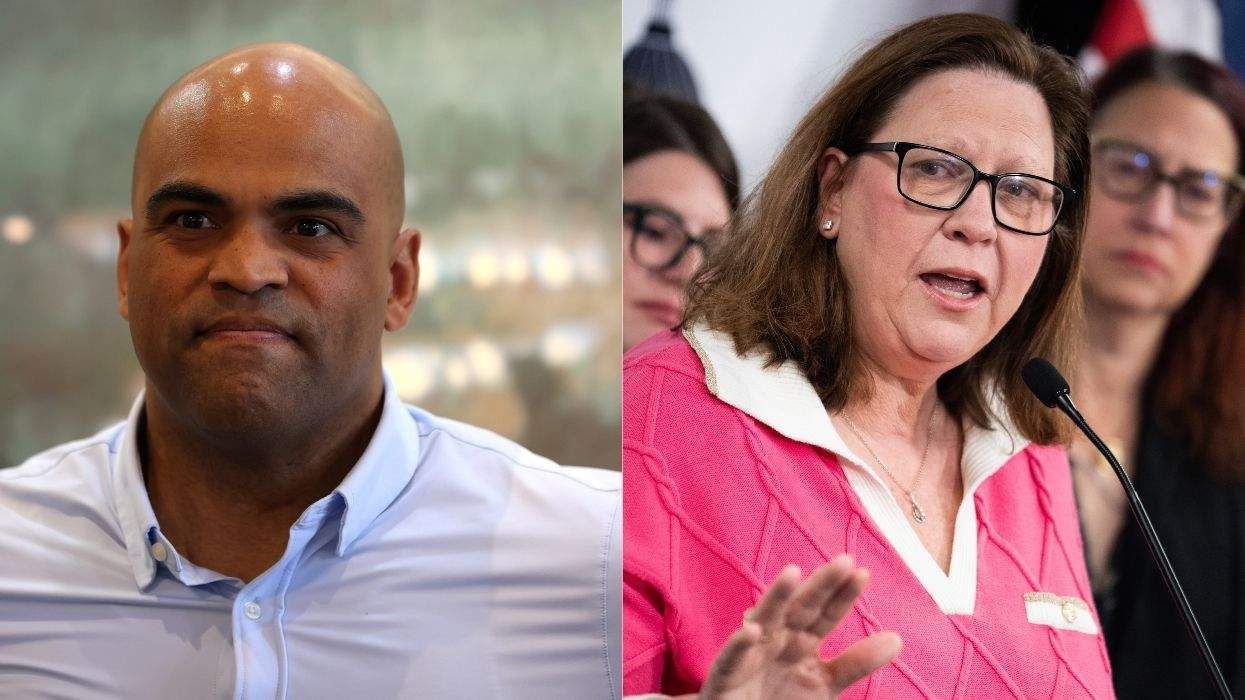It's Louisiana's last legislative session with Gov. Bobby Jindal in office, and the Republican is pulling out all the stops to push for a "religious freedom" bill that some say will make Indiana's original Religious Freedom Restoration Act look tame.
Jindal met with reporters Thursday at the state capitol for 30 minutes, telling them he believes opponents of the bill have "misperceptions or misunderstandings" about it, the Associated Press reports.
He and the bill's sponsor, Republican Rep. Mike Johnson, say the measure would in no way condone discrimination LGBT individuals or same-sex couples.
Jindal told reporters the Marriage and Conscience Act is designed to protect Christians who are morally opposed to marriage equality in an increasingly permissive society. It seeks to prevent Louisiana's state government from from denying any resident or business a license, benefits, or tax deductions because of actions taken "in accordance with a religious belief or moral conviction" about marriage.
"I think as folks see what the bill does, how it's been narrowly drafted ... I think there is more and more support," Jindal said.
On MSNBC, Jindal told Jane Timm that the bill "is not about discriminating against anyone or about judging people. This is simply about protecting the essential religious freedom rights in the First Amendment."
Critics of the Marriage and Conscience Act have linked it to controversial "religious freedom" measures (since amended) in Arkansas and Indiana as promoting discrimination against gays and lesbians, something Jindal said was "offensive."
Scott Eric Kaufman wrote in Salon that the Louisiana bill "would grant people of faith blanket protection against any government action," and "will likely put Indiana's Religious Freedom Restoration Act to shame."
Steve Benen, writing on MSNBC's Rachel Maddow blog, suggested Jindal's efforts are focused not on his conservative constituents as much as his base of support for his next ambition: "Jindal wants to be president; the far-right governor is looking for a way to get attention for himself; he's eager to curry favor with social conservatives in his party's base; so he's pushing a right-to-discriminate proposal -- not because it's necessary, but because it might improve his candidacy's odds."
Jindal's biggest critic, however, is IBM, which is opening a technology services center in downtown Baton Rouge.
"A bill that legally protects discrimination based on same-sex marriage status will create a hostile environment for our current and prospective employees, and is antithetical to our company's values," IBM senior state executive James M. Driesse wrote to Jindal this week. "IBM will find it much harder to attract talent to Louisiana if this bill is passed and enacted into law."
Jindal replied, "I hope you and your colleagues will cut through the smears and misconceptions being spread about this bill and learn about what it actually seeks to accomplish."
"This Louisiana bill really does what people accused the Indiana law of doing," leading religious freedom expert and University of Virginia law professor Doug Laycock told MSNBC. "The sponsor and the governor says it doesn't authorize discrimination -- I have no idea what that means, it pretty clearly does," he added.
Jindal defends the act as protecting religious freedom: "Religious liberty is not just about the ability to pray a couple of hours a week," said Jindal. "Religious liberty is about being able to live your life seven days a week according to your beliefs."















Charlie Kirk DID say stoning gay people was the 'perfect law' — and these other heinous quotes
These are some of his worst comments about LGBTQ+ people made by Charlie Kirk.